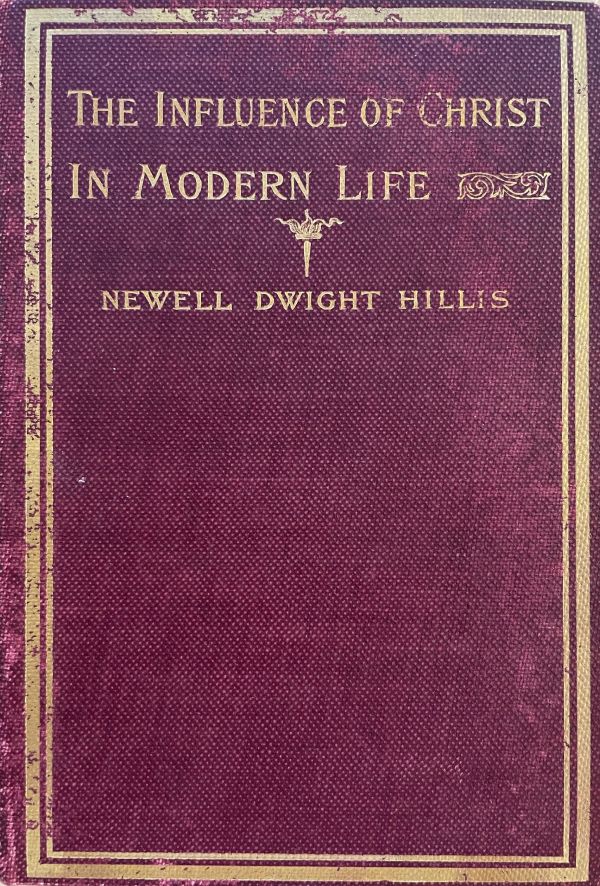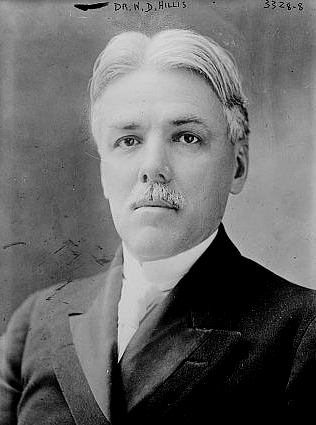Taken on its own, The Influence of Christ in Modern Life may be almost as relevant today as it was in the early 20th century.
High Point: Hillis’ unexpected broadminded approach to the role of churches in American life.
Low Point: Hillis’ controversial and even unthinkable stands on some issues.
Author: Newell Dwight Hillis
Publication Date: 1900
Genre: Religion
Project Gutenberg: Not available
LibriVox: Not available
Movie/TV Adaptation: None
“The theologies of fear are breaking up.”
This quote from Newell Dwight Hillis’ The Influence of Christ in Modern Life, published in 1900, could be considered the theme of the book.
The Church in Society
Hillis was a religious leader and author during the late 19th and early 20th centuries. Apparently, many of his views and books about religion and society were controversial even at that time, and would likely be unthinkable to most people today. Those attitudes, appear occasionally in this book—mostly regarding non-American and non-European culture. Despite that, the book generally reflects a positive assessment of the role of churches in American life.
One might reasonably expect a fire and brimstone dissertation from a Protestant leader at the dawn of the 20th century. While Hillis does express concern about some elements of American culture, his worry centers around potential harm to society’s rate of progress rather than a threat of eternal damnation. He takes an unexpectedly broadminded approach, expressing optimism about the influence of churches on secular society.
Unexpected Beliefs
There are other surprises.
He supports the theory of evolution—not necessarily a popular view by clergy in the early 20th century—saying it is “a vision of the possible method by which God secures progress for man and nature.”
Hillis maintains that differences in Christian beliefs are a natural progression in the development of the human race. Differences are acceptable. The commonalities are more important, and should reflect an overarching unity. He says, “God is ever working toward variety and difference, and man is forever trying to rub out the differences.”
Unique Writing Style
Hillis’ writing style has a unique appeal. To begin with, his extensive education is evident as he continually cites masters of arts, literature, philosophy and science—both ancient and contemporary.
In addition, he writes as an orator. There is no indication in the book that it is a collection of speeches. But he frequently employs a cadence in the text is often used in public speaking to emphasize a key idea. As you read, you cannot help but imagine sitting in an audience as Hillis drives home his point.
Throughout his life, Hillis may have had some questionable positions on issues of the day. But taken on its own, The Influence of Christ in Modern Life may be almost as relevant in the 21st century as it was in the early 20th.
Quotes
| “The measure of civilization for a nation is found in the number and quality of its heroes and people.” |
| “Emerson tells of an abolition meeting in Boston, when a politician railed at Sojourner Truth. When the man sat down, the tall black woman arose, and, tapping her forehead very significantly, said to him, ‘Honey, I would tell you something, but I see you ain’t got nothing to carry it home in.'” |
| “The theologies of fear are breaking up. The philosophy organized about terror and Satan is giving way to one organized about love and Jesus Christ.” |



